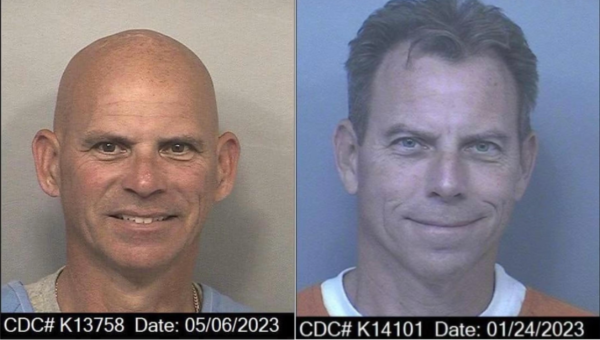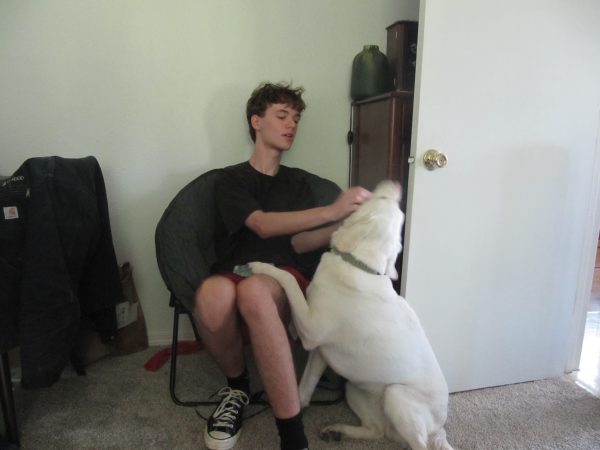
On Sept. 19, the anthology series “Monsters: The Lyle and Erik Menendez Story” was released on Netflix. The limited series is a retelling of the 1989 Menendez murders, depicting the personal lives of brothers Lyle and Erik Menendez before and after they killed their parents, Jose and Kitty. The series’ tone is violent and disturbing, recreating real moments into scenes — including the moment of the murder and Jose’s alleged sexual and mental abuse towards his children. The show has caught many people’s attention, and after the Menendez family released a statement disapproving of the show’s portrayal of the brothers, many viewers have questioned the accuracy and purpose of the series.
Because the show was released 40 years after the murder trials, the generational perspective and attitude towards the case has shifted. Specifically, the younger generation on social media has spoken out in support of the Menendez brothers.
There have been thousands of opinions shared online regarding the Menendez brothers. On one end of the spectrum, some individuals believe they should be freed or at least considered for a retrial. In the middle, some people are not taking the show as seriously by making edits on social media, and others are dressing up as the brothers for entertainment purposes. On the other hand, there are people — mainly the people alive to witness the trials— who believe they should be kept locked up.
The treatment of men’s sexual abuse cases has evolved over the years — at least in the public’s view — and recognition has grown for male victims.
Many viewers have found the depictions of the brothers in the show to be controversial. A few main examples include, Erik’s sexuality constantly being questioned, suggesting he might be gay; the brothers’ incestuous relationship; and the overall intense personalities of the brothers. The brothers have denied all suggestive claims about themselves in the series.
Erik’s wife, Tammi Menendez, posted Erik’s official response to the show: “It is sad for me to know that Netflix’s dishonest portrayal of the tragedies surrounding our crime has taken the painful truth several steps backward.” Erik’s response was shared across social media and reached a variety of audiences. Even though Lyle hasn’t responded to the show, his extended family made a statement, writing, “Ryan Murphy’s ‘Monsters: The Lyle and Erik Menendez Story’ is a phobic, gross, anachronistic, serial episode nightmare that is … riddled with mistruths and outright falsehoods.” Although it was legal for Netflix to make a show about them without their consent, they were never previously consulted, leaving the viewers to question the ethical guidelines surrounding the show.
Even with all of the backlash, the creator of the series, Ryan Murphy stood by his decision to make the show. In an interview with the Hollywood Reporter, Murphy said, “The Menendez brothers should be sending me flowers. … I know for a fact that many people have offered to help them because of the interest of my show and what we did.” Murphy claimed that the attention would gain the traction the brothers needed for a possible retrial. Murphy’s point has been proven true as, since the release of the series, new evidence has emerged of the alleged abuse the brothers experienced. Additionally, the online backlash to the show has sparked a movement that could have a chance to influence the possibility of a retrial. Even Kim Kardashian wrote an essay advocating for the brothers’ life sentences to be reconsidered.
An anonymous viewer of the series said, “They are going viral right now, and it’s not so much because of the case, it’s the actors. … [W]e don’t want to think that [the fashion, music, and the actors have had] a huge part in what makes it so interesting.” This viewer is speaking to the attention garnered by what some see as the physical attractiveness of Nicholas Alexander Chavez as Lyle and Cooper Koch as Erik. They continue saying, “[The case] wouldn’t be getting as much recognition because there are more people watching the show than they are watching the documentary.” Less than a month after the series was released, Netflix also released a true crime documentary directed by Alejandro Hartmann.
A video production teacher at Franklin, Adam Souza, says, “We all have … these evil parts of ourselves, which [can make] really interesting storylines for films. I think that is one thing to play on the narrative of that kind of storyline. And then there’s another thing to exploit a situation where two people are murdered, and it’s a matter of finding that balance.” It’s essential to navigate these difficult narratives responsibly by ensuring movies and series educate, rather than sensationalize.


































